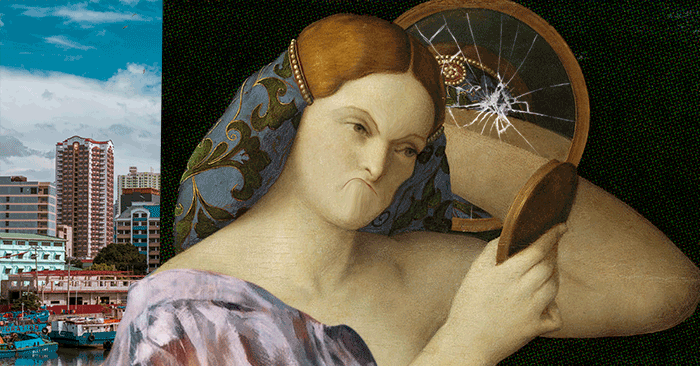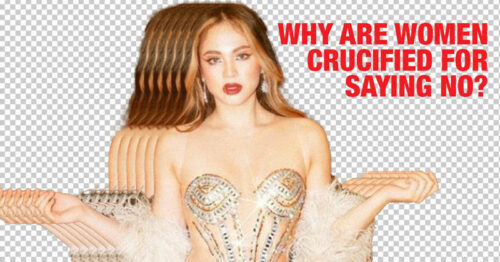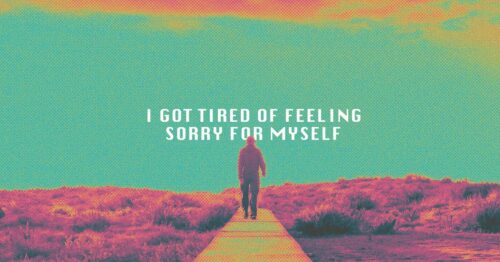A much needed reminder: confidence looks different on everyone
When I wrote a story last year about non-surgical cheek shrinking methods, I touched lightly on how body positivity is easy to talk about, but difficult to live out on a personal level. Despite our team having published another article about the same topic, I made sure to tread carefully: at the risk of sounding hypocritical, disagreeable or simply ridiculous, I didn’t unpack how this all-encompassing battle cry of loving ourselves “the way we are” can be strangely damaging.
How men and women in this country still look upon wanting to change one’s appearance as tampering with God’s property.
How there is an underlying current of shame laced into wanting to look better and actually doing something about it. The irony in all of it.
“Casting shame on people who want to achieve physical
goals instigates a murmur of guilt.
As if atonement is needed for aspiration.”
RELATED: To All The (Acne) Scars That Shamed Me
When you Google the term body positivity, the first result that pops up reads that it is “a social movement rooted in the belief that all human beings should have a positive body image, while challenging the ways in which society presents and views the physical body.” It’s from Wikipedia––hardly the credible source––but it’s the first thing people see fresh out of the search engine. For the record, the explanation is pretty spot on.
All humans should have a positive body image.
No matter what angle you view it from, it’s a lot of pressure. To a certain extent, throwing a blanket of body positivity over our personal complexes holds our emotions in a vice grip. There’s a jarring disconnect. This idea of saying yes to all body shapes, all skin complexions, all insecurities was borne out of a desire to empower women. But in the same swoop, we shame women for wanting bigger breasts, smaller waists, smaller cheeks. In the same way that the Kardashians advertising appetite suppressant lollipops propagates the idea that girls need to look a certain way, casting shame on people who want to achieve physical goals instigates a murmur of guilt. As if atonement is needed for aspiration.
Too much of anything is a bad thing––even when it’s a good cause we’re talking about. It’s upsetting that to many, the idea of building confidence in our physicality rings synonymous to taking invalidating any form of alteration, whether it be for health, fitness or aesthetic. What was once a call to love the self has mutated into another reason for women to feel invalidated.
Body confidence is the light at the end of the tunnel. It’s the end destination we're all striving to work towards, but what there's a strange lack of wiggle room for the journey there. What if the key to body positivity is confronting our insecurities and, god forbid, doing something to address them?
RELATED: I Didn’t Wear Makeup for A Week and My Skin Feels…
A year or so ago, we ran another article wherein we surveyed 17 men and women on their thoughts on plastic surgery and cosmetic treatments. Surprisingly, 16 out of the 17 respondents ultimately chalked up their sentiments to a collective statement of “If it makes a person happy, then they should do it.” On the flipside, we were met with a slew of negative Facebook comments when when we published the article about cheek shrinking methods. There were those who shamed us for dictating how women should look, and then one or two who said the writers should just quit their craft altogether. Perhaps clicking on the story and skimming through the first two or three paragraphs would have changed their perspectives a little, but alas. Maybe it was our fault for assuming reading before reacting is common practice.
To this day, I still think about the polar reactions across those two articles. Maybe we just happened to ask an especially open-minded pool of respondents for the survey. Maybe Facebook just isn't the place to discuss those topics. After a few months of thinking it through, I'm inclined to think that it all trickles down to this: that public platforms are for positivity and flaws are for closed doors. Or something like that, at least.
I still can't make sense of it. I've tried.
So hey, if you're absolutely certain there's a problem area you want to shrink, a body part you want to lift, a patch of hair you want to laser, go out there and get it done. There's no single path to body confidence. And if yours looks like a fat graft, a liposuction, a contoured nose or sunken cheeks, your feelings are just as valid.
Art Alexandra Lara


















